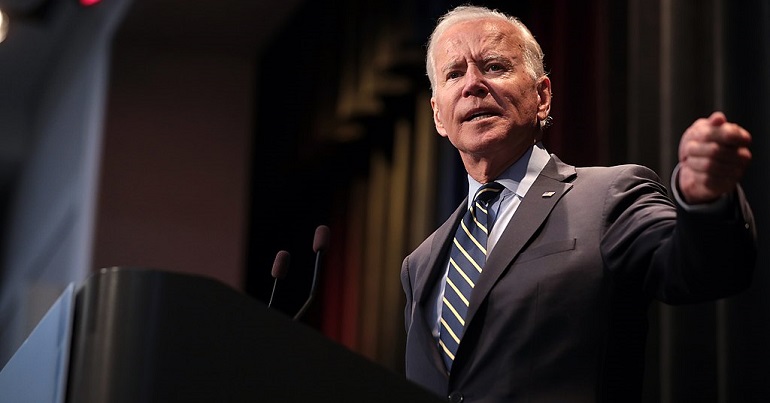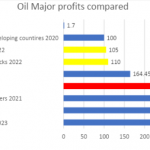3 things we’ve learnt on Libya
1) This isn’t just a No Fly Zone.
Today, there have been reports of French planes bombing Libya, and firing from the air at tanks. So, the first thing that we have learned is that, as predicted, there is no such thing as a No Fly Zone which is only a No Fly Zone. This action means air strikes. It is surely time to bust the myth that the West would only impose a No Fly Zone. This is a full scale air intervention. It was always going to be.
2) This isn’t about democracy.
The Pentagon is planning to train the Saudi Air Force. This is coming out only days after Saudi forces oppressed the democratic uprising in Bahrain. This is coming despite the Saudi government’s record of democracy and freedom of expression… If this training is the price we are paying for the Saudi government not kicking off about the intervention in Libya, then what we have effectively done is stop the cruching of one rebellion by training the crushers of another.
For Western governments, this isn’t about the brutality of dictatorships, and it’s not about supporting the revolution. We may believe that it is better to have our leaders intervene in Libya despite peverse motives, but please don’t believe that our governments support democracy in the Middle East. And if we ever wonder why it is that many in the Arab world hate us, it is not because we oppose their governments. It is because we support them.
3) Our governments don’t care about chocolate.
Over the last few months, tens of thousands of refugees have fled Cote d’Ivoire as the elected president and the encumbent president Gbagbo have done battle. Gbagbo was defeated in the election, but is refusing to leave. He is digging his heals in and his people are digging graves as organised forces on each side clash. In other words, democratic forces are battling a brutal dictator, and people are being killed in the middle. Sound familiar? We have done almost nothing to intervene. Today, this violence has intensified. Libya is a major oil producer. The Ivory Coast is the world’s biggest producer of cocoa. Is that why we are talking about Libya, but not looking a few hundred miles to its South?
—
None of these are, on their own, reasons to support or oppose the military action taken by France. But let’s not pretend that the argument is a simple one, and let’s not be so naive as to trust the motives of our governments.




The tragedy in Libya was really heartbreaking. I hope that this country gets better in the succeeding years.
I was really sad when the tragedy happened to Libya. It seemed that no one wanted to go to Libya anymore. That is just so depressing for the country.
http://bellacaledonia.org.uk/2011/03/22/military-intervention-in-libya-is-a-serious-mistake-says-noam-chomsky/
A gross act of hypocrisy. It probably is about oil but what it isn’t about is the ‘moral’ imperative to save human lives and spread democracy. If it were, they we would take on China, Israel, Saudi Arabia and Russia too. I guess some tyrants and some human rights’ abuses are too tricky to tackle. Lets just flex our muscles on the wee guy. Oh, and let public services at home be cut.
“It’s good to read intelligent critisism and discussion here…”
@Lilly – damn right. I come here after reading the reams of comments on the end of Telegraph articles written by American survivalists planning their resistance against the New World Order. After trawling through that drivel this is one of the few sites that manages to restore my faith in the ability of human beings to make their world better.
🙂
Hi Jonathan I take your point, I didn’t find the link on the daily mirror, but I try to be open minded and search out current affairs from sources other than UK & US media, not that I don’t read them as well. I agree with most of what you’re saying. I’m just sceptical of any form of military intervention under the guise of ‘defence’. This term reminds me of William Blake seeing through the disguises, powerful people saying one thing and doing the opposite. Every little child killed is one too many, every excited correspondent getting off on detailing the catastrophies is one too many. Its good to read intelligent critisism and discussion here, I don’t kid myself I understand it all but I know a con when I hear one & that was Cameron this time, Blair last time & so it goes on.
@Lilly – I’ve looked around and the closest to that suggestion I have found is here http://print.dailymirror.lk/opinion1/37290.html and frankly it’s just an opinion piece from a journalist on a Tamil daily in Sri Lanka – and my experience of the Tamil press is very mixed, not something I’d lightly treat as a reliable source – and this guy even admits it’s simply supposition.
Without compelling evidence to the contrary I don’t buy the notion that Western powers have provoked the Libyan uprising. It caught all of them on the hop. When the UK sent in a special forces team with a spook they were rounded up and sent packing. They still have no idea whether the anti-Gaddafi forces are going to be remotely democratic or committed to human rights or even simply people they can do business with. Moreover the efforts of the Blair government to normalise relations with Tripoli (and Berlusconi was even friendlier) suggest that the West was quite prepared to live with business as usual if it was predictable and stable.
Now what we have is a hugely unpredictable situation where Western powers will be damned for intervening just as they would have been damned if they’d stood by while Gaddafi forces killed civilians.
@Matt – thanks for the Johann Hari piece. He is almost invariably excellent. I feel I need to know more about the Aristide situation, however I wouldn’t argue with the notion that democracies can be easier for the major powers to manipulate than autocracies. The sad fact is that all too often revolutions aimed at promoting greater equality end up as dictatorships and that the determination of some in the West to undermine peasant movements (such as that in Bolivia) is a factor and speeds up the transition to dictatorship. If you’re looking for a precursor to Aristide this is sadly interesting – http://en.wikipedia.org/wiki/Toussaint_Louverture
@Adam – I think we can all accept that the West doesn’t go into this with an unblemished record, clean hands or unimpeachable intentions. We would probably all agree (and such comments have come from right across the political spectrum) that this could all go horribly, horribly wrong and that there are no simple choices. However this is the world we now live in – just as Vietnam was the first real war of the television age, Libya is arguably tghe first conflict of the multimedia age. We can follow it from a thousand perspectives in real time. It’s happening all around us and that makes it very hard for people and thus their leaders to do nothing while civilians are killed by tanks, artillery and warplanes.
God help us all and especially the poor people of Libya.
I’ve been speculating about whether Saudi Arabia could, at some point, intervene in Yemen for a while now. However, I felt a bit chastened by a chat I just had with a Saudi mathematician. I asked him, apropos the continuing unrest in Yemen, whether he could foresee this scenario. He said he couldn’t. ‘They know that Saleh is an oppressor. He pointed out. Simply no one in Yemen supports him. Bahrain is different.’ I thought that was a pretty thought-provoking comment.
I’ve just tried wading through old tweets to find the link you asked about Jonathan, I couldn’t find the original site but this one is useful, saying much the same thing. democraticunderground.com leads to Pakistan Observer article
Just read this from Johann Hari, which I think supports Adam’s main point here, and more. A horrible example of government and corporations actively removing democracy to save their own interests…
http://www.johannhari.com/2010/09/17/how-our-governments-snuffed-out-a-democracy-and-kidnapped-a-president-a-modern-parable
“France UK & USA were already in Libya on the 24 Feb, ready to stir up unrest and infiltrate the protesters etc.”
There’s evidence of Western collusion in the Libyan uprising? Can you link to it? It’s certainly something the various news organisations covering Libya over the last month have failed to make much of…
France UK & USA were already in Libya on the 24 Feb, ready to stir up unrest and infiltrate the protesters etc. It makes me ashamed to have violence perpetrated under my name (British citizen) using a guise of protecting innocent civilians by the British Government France & USA, I’m sick of the war games building our own economies on the back of someone elses suffering. It seems as long as the people are brown or black our leaders are happy to keep the show on the road e.g. causing civil war where they can reap the lucrative rewards of using private contractors to rebuild countries infrastructures that they have destroyed and get everyone to pay for it, and keep the endless supply of private security firms like G4 ensconsed doing their dirty business and not concern themselves with the suffering inflicted. These idiots in power will take us all down with them,they’re poisoning the land with their war toys and don’t give a shit, but global warming is something they can’t control.
Not sure you’re right about Pickles – he looks more of a pie type to me…. Chocolate’s for soft southerners!
Oh, and, on Eric Pikles, good point.
Hi Jonathan,
my point isn’t “why aren’t we invading Saudi Arabia too?”. My point is that it seems that we have agreed (or rather that the Pentagon has agreed) to train the Saudi air force, in exchange for the House of Saud not kicking off about Libya. I don’t know the relative skills of the Saudi airforce and the training they’ll get. But, given their role in Bahrain, and their potential role in Yemen, it seems that this may well turn out to mean America has trained piolots to oppress pro-democracy protests.
Now, some involved in that deal may well be thinking “Uprisings in Yemen and Bahrain were always going to fail – Saudi was always going to intervene and put those protests down, and they don’t need well trained piolots to do that”. And I can understand that to a certain extent.
But my point, and I think it’s an important one to remember, is that we shouldn’t buy into the myth that we are the heroes here. Whatever the reasons for these air strikes – and I agree that they are many and complex – the brutal oppession of a democratic uprising clearly isn’t sufficient cause for us to intervene. There are clearly other factors in the decision too.
Adam — we do pick and choose where we intervene. Ultimately countries foreign policy is about self interest – David Cameron used self interest as one reason for action in Libya, in so far as an unstable state on Europe’s boorders, whose autocratic leader has a record (allegedly, but credibly) of sponsoring terrorism, is something to be avoided.
Would we pick a fight with China? No, it would be crazy and unless China picked a fight with the West (N. Korea uses nukes, West intervenes, China is so paranoid about having a Western sponsored state (ie a united Korea) on its borders it supports Pynogyang militarily …we’d seek to avoid conflict at pretty much any cost.
As for the Saudis that is also complex. There is the additional complicating factor that it is home to the two holiest sites in Islam, non Muslims are banned from Mecca and the very presence of Western forces anywhere near either of those would have the power to further provoke conflict between the West and large portions of the Islamic world (remember also that the Islamic world has a very young population and think how a bunch of not very well educated and thoroughly propagandised Brits would react if we had foreign troop arrive in Harwich or Holyhead…).
Dooes that mean that Western governments would be sad to see the demise of the House of Saud? Almost certainly not. Saudi money has been used to lots of ill ends, not least being pumped into supporting the propogation of Wahabism and you can even see the effects of that in Britain. It’s more that experience has taught most Western militaries that getting involved in what are essentially police actions are a thankless task without end and without an immediate and pressing reason they try to avoid doing so. However if one argues that oil is the major factor one might have expected Western intervention in the Arabian peninsula a long time ago.
Lastly (comes up for air), and I will regret this flippant remark – I have two words for anyone who says that governments don’t care about chocolate: Eric Pickles.
Jim, thanks for that, I should have read more about the situation before I accepted the story told in the Western media re Gbagbo. But the point – that we pick and choose where we intervene – still stands, I think.
I don’t think the situation in the Ivory Coast is nearly as clear cut as you make it out to be, although I should say that actually in some parts of the West (France for example) they have had extensive daily coverage of events there.
If you compare Gbagbo’s time in government with Gadaffi’s we are not comparing like with like in that the Ivory Coast is essentially a democratic country that got embroiled in a civil war.
In the recent election that took place half the country had no government control over it and the accusation is that in the north wide scale ballot stuffing took place – I can’t say for definate that Gbagbo lost that election – but the Western media have decided that he lost because they favour the other candidate.
That is not to say that what is happening now is justifiable – but I’m very uncomfortable with people blithly saying he lost the election and describing him as a dictator. While the former may or may not be true the latter is a massive mischaracterisation of his time in office.
Hi Jonathan, yup, I agree it’s far more complex than just “this is about oil”, and I agree there are a number of reasons that this is happening in Libya and not Cote d’Ivoire. As I say at the end, my point isn’t that this necessarily on its own means we should oppose the whole thing. But if we look at point 2 – we (in the broadest possible sense) are very actively propping up a Saudi regime which is not only oppressing protest in Bahrain, but will almost certainly intervene in Yemen if there is any more sign of success from the protests there – and I don’t see any reason to believe they won’t be just as brutal. I think Britain pushing this probably has more to do with the fact that it’s the budget next week than with oil, if I’m really honest. And I also don’t think everyone involved is cynical – I understand Michael Gove was one of the main people pushing this in cabinet. I can believe that he is a genuine (neo-) liberal interventionist who wants to support democracy – which he sees as going hand in hand with capitalism. These sorts of thing happen because a consensus is built between lots of people, and they will each have their own reasons to a certain extent. There are certainly many for whom stability in the oil market is a significant factor – after all, it could well define the fate of this government – particularly high inflation at the same time as cuts could well sink them. And at least some are surely aware of that.
I’m not sure if that’s wholly fair; Libya is part of a much wider upsurge of popular Arab sentiment – a region-wide demand for greater freedom – and if anything there’s been a reluctance to interfere lest the West be seen to co-opt and by association discredit the growing freedom movements. Indeed the sense is more one of it’s being a question of how long could European governments stay out of a developing humanitarian crisis on its doorstep (where an authoritariasn leader is using tanks, artillery and warplanes against civilians and warning ‘no mercy’) rather than of Western powers hovering and trying to look to get involved in yet another conflict with no clear exit.
Moreover the intense media coverage has made Libya an ever present event in living rooms across the West, whereas Cote d’Ivoire is not — and that isn’t because of oil, it’s because it isn’t part of a bigger story. Arab protests have been compared to the upheavals in Eastern Europe in the late 80s – epoch making – and could fundamentally reshape the politics of the region. Again, that’s not the case in Cote d’Ivoire, thus comparatively little media coverage and proportionately less pressure on European governments to ‘do something’.
Of course Western governments would really like to see the back of Gaddafi, but we shoiuld ask ourselves whether the closer parallel is with Iraq or with Bosnia. I, for one, wouldn’t have wished to be silent in the face of another possible Srebrenica.
Nail on the head, Adam. Just another example confirming what we already knew about the real motives behind these things.